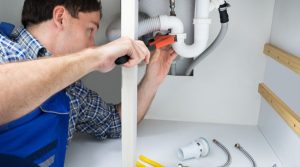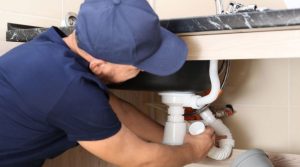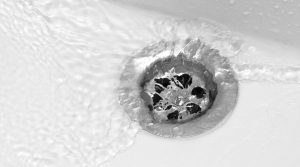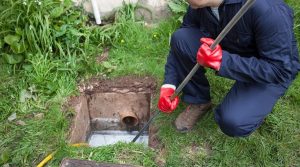Home maintenance can often feel overwhelming, and radiators are no exception. Neglecting them can lead to leaks, rust, and expensive repairs. Fortunately, with preventive care, you can extend your radiator’s lifespan and avoid costly replacements. Here’s how.
Key Takeaways:
- Prevent leaks and rust by conducting regular maintenance and using corrosion inhibitors.
- Sludge buildup is a primary cause of radiator leaks and should be cleared promptly.
- Leaks are repairable, but timely action is essential to avoid costly replacements.
- Check for valve leaks and loose bolts before calling a professional.
- Replace electric radiators immediately if they begin leaking.
What Leads to Radiator Leaks in Homes?
Many homeowners don’t realize that a simple chemical reaction can lead to radiator rust and leaks. The primary culprit? Sludge buildup. Over time, debris and rust particles accumulate inside your radiator, creating a thick, mud-like substance that accelerates corrosion. If left untreated, small holes will form, eventually leading to leaks.
Why does this happen?
- Water and metal interaction – Steel and water naturally react over time, leading to corrosion.
- Poor maintenance – Neglecting to flush your system regularly allows sludge buildup.
- Trapped air – When air is present in your system, it increases oxidation, leading to rust formation.
- Old system components – Older radiators may have worn-out parts that are more prone to leaks.
How to Avoid Rusting
Taking a proactive approach to maintenance will keep your radiator in top shape. Follow these steps:
- Flush Your System Regularly
- Schedule an annual radiator flush to remove debris and sludge.
- If you notice dirty water when bleeding your radiator, it’s time for a flush.
- Use a Corrosion Inhibitor
- A corrosion inhibitor acts as a protective layer, preventing rust from forming.
- Ensure you add this after flushing your system.
- Ensure Proper Installation
- If your system is still under warranty, confirm that the plumber flushed out debris during installation.
- Check that all valves and fittings are secure to prevent leaks.
- Check for Leaks and Moisture
- Periodically inspect around valves and joints for damp spots.
- If you notice rust forming, address it immediately before it worsens.
What Happens If My Radiator Is Already Leaking?
A leaky radiator doesn’t always mean you need a replacement. Here’s how to troubleshoot:
- Identify the Source of the Leak
- Wipe your radiator dry and locate where the water is coming from.
- Check the Valves
- If water is leaking from a valve, try tightening it with a wrench.
- If the leak persists, you may need a plumber to replace the valve.
- Inspect the Pipe Joints
- A loose bolt at the connection between the radiator and the pipes can cause leaks.
- Tighten any loose connections before calling a professional.
- Assess the Radiator Body
- If the leak is coming from a corroded section of the radiator itself, a replacement may be necessary.
- If You Have an Electric Radiator, Replace It Immediately
- Water and electricity don’t mix. If your electric radiator is leaking, replace it as soon as possible for safety reasons.
Additional Tips to Extend the Life of Your Radiator
1. Bleed Your Radiator Regularly
Air trapped in your radiator can cause inefficient heating and corrosion. Bleed your radiators at least once a year to remove any trapped air.
2. Install a Magnetic Filter
Magnetic filters trap rust and metal particles before they can cause damage. Installing one can significantly reduce sludge buildup.
3. Monitor Your Boiler Pressure
If your boiler pressure is too high, it can put strain on your radiator, leading to leaks. Check the pressure gauge regularly and adjust as needed.
4. Insulate Pipes in Cold Weather
Frozen pipes can lead to expansion and leaks. Insulating them will help prevent cracks and damage.
Frequently Asked Questions (FAQ)
Q: How often should I check my radiator for leaks?
A: It’s a good idea to inspect your radiator every few months, especially before winter, to catch any early signs of leaks or rust.
Q: Can I use household products to prevent rust?
A: While some DIY solutions exist, it’s best to use a professional-grade corrosion inhibitor for lasting protection.
Q: Is a leaking radiator dangerous?
A: It depends on the severity of the leak. Small leaks may only cause minor water damage, but a significant leak could affect your heating system’s efficiency. If you have an electric radiator, replace it immediately for safety.
Q: How do I know if my radiator needs replacing?
A: If the leak is from corrosion in the radiator body itself, or if the unit is old and inefficient, replacing it might be the best option.
Q: Where can I buy a new radiator?
A: If you’re looking for a new radiator, check out our buyer’s guide to find the best option for your home.
Conclusion
Preventing radiator leaks and rust is simple if you take a proactive approach. Regular maintenance, using corrosion inhibitors, and checking for leaks can save you from costly repairs or replacements. Don’t wait until your radiator fails—start caring for it today!
Contact us today to experience the expertise of a professional plumbing service. We prioritize your satisfaction and the health of your plumbing system.
Looking for a new radiator? Browse our selection of high-quality heating solutions to keep your home warm and efficient year-round.







